Do you ever wonder what it would be like to have glowing, healthy skin? Well, if you smoke cigarettes, you're at a disadvantage. Quitting smoking has amazing benefits – and one of them is clearer, healthier skin! In this blog, we'll dive into the science behind why quitting smoking can make your skin look better – and how you can work towards getting the perfect complexion. Ready to learn more? Then let's get started.
Introduction
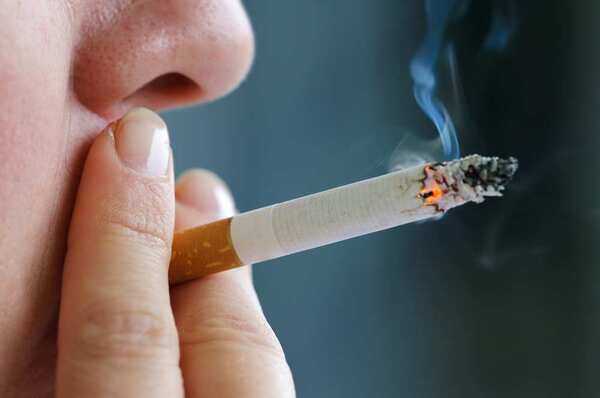
Quitting smoking can bring several health benefits, including improving the overall look and feel of your skin. Tobacco smoke is one of the leading preventable causes of premature aging, so quitting can drastically reduce signs of aging and make you look years younger.
This guide will provide an overview of how smoking affects your skin and explain how quitting can help improve its health and appearance. Natural remedies to counter smoking-related inflammation can also be discussed. By understanding these effects, smokers can make informed decisions about their health, as well as take steps to restore the radiance of their skin with natural remedies.
Effects of Smoking on Skin
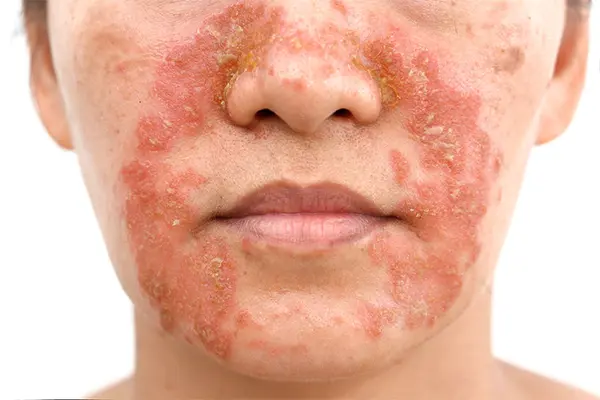
Smoking can cause many damaging effects on the body, one of the most damaging being its effect on skin. Smokers are prone to premature aging and wrinkles, as smoking breaks down collagen and elastin. These are naturally occurring proteins that form a supportive network in the skin and keep it looking youthful; when this supportive network is lost, wrinkles become much more visible. Smoking also narrows the blood vessels in your skin’s outer layer which reduces blood flow; this consequently reduces nutrient flows to the skin’s cells which can result in a dull complexion.
In addition to premature aging and wrinkles, smoking increases your risk of developing skin cancer due to overexposure to ultraviolet radiation from natural sunlight or sunlamps; it also impairs wound healing as smoking impairs collagen production. Finally, smoking has been known to increase the severity of acne by reducing oxygen levels in the blood supply which thereby hinders wound healing; this exacerbates acne related inflammation and bacterial growth.
With these negative effects in mind, quitting smoking promises many positive outcomes for your skin health:
- Five weeks after quitting, you will notice improved circulation as oxygen levels rise and skin cell repair is enhanced.
- After ten weeks of quitting smoking you will notice an acceleration in shedding of dead skin cells; this makes way for new collagen production while at the same time improving elasticity – both of which are essential for vibrant looking skin!
- Other positive effects that occur when you quit include better hydration, renewed glow, and fewer dark circles around eyes from lack of oxygen flow!
How Quitting Smoking Improves Skin Health

When it comes to health, many people know that quitting smoking has important benefits, but one often overlooked factor is skin health. Smoking causes the body to produce more of the hormone cortisol, resulting in a decrease in the production of collagen and elastin; two proteins responsible for skin's firmness and elasticity. In addition, smoke inhalation can compromise your collagen's ability to repair itself after sun exposure; this is why smokers tend to look older than their non-smoking peers while they’re younger.
Smokers are also at an increased risk for skin irritations like psoriasis, acne and eczema due to their weakened immune system. This can lead to dry patches on the skin and deep wrinkles appearing earlier than normal on the face. In addition, many smokers find that focusing on their skin health can help reduce cravings for cigarettes as well as provide a sense of satisfaction from accomplishing something positive.
By quitting smoking, you can give your skin a chance to start repairing itself and rebuilding its elastin reserves. Skin elasticity has been seen to increase almost immediately upon smoking cessation and regular hydration will help maintain healthy levels and improve complexion over time. Also reducing exposure to secondhand smoke is beneficial because it limits harm caused by nicotine residue found in clothing or furniture which can be absorbed through your pores without even inhaling smoke directly; this also applies if you live with smokers or work in an environment around them.
For those looking for further advice on how to protect their skin after quitting smoking there are moisturizing treatments available as well as healthy lifestyle changes such as:
- Wearing sunscreen regularly
- Using antioxidants such as vitamin C serums
- Changing up your daily routine by including exercise or relaxation techniques such as yoga into your life.
Quitting smoking may not immediately fix all of its damage but it will certainly help repair your damaged cells going forward if given enough time!
Tips to Help Quit Smoking
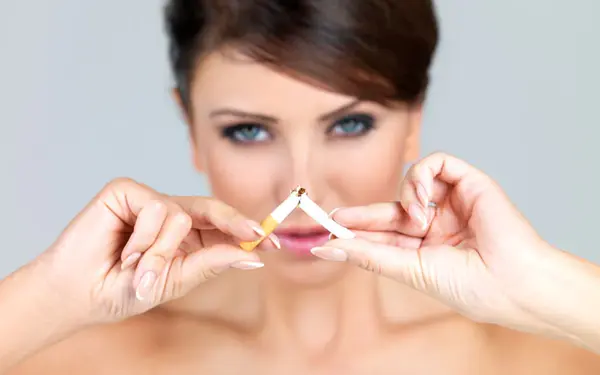
Creating a plan to quit smoking can be a difficult process and often requires trial and error. Having the right mindset and understanding your individual triggers are important components of a successful quitting strategy.
Quitting strategies include:
- Quit cold turkey: Quitting all at once or “cold turkey” is one of the most common methods to help people break their habit of smoking. This method involves an abrupt cessation in all smoking activity, which may require extra willpower -- however, many smokers have been able to successfully quit this way.
- Make it gradual: Many would-be quitters find that gradually decreasing their daily intake of cigarettes helps take the edge off the cravings associated with suddenly stopping. When tackling this method, many smokers find it helpful to set achievable goals such as reducing consumption by a set amount daily (e.g., two cigarettes per day) or taking another non-smoking day each week until they are completely smoke-free.
- Understand triggers: Knowing where you may be subjected to cravings such as bars or restaurants where you normally smoke can help create a plan for avoiding them during times you could be tempted with cigarettes in hand. Additionally, finding replacements for habits associated with smoking such as having a regular coffee (without the cigarettes) can make it easier for new non-smokers adjust over time.
- Get support: Many people who successfully achieve long-term abstinence from tobacco use credit support networks with playing an important role in their journey from smoker to non-smoker. By sharing your story and struggles with other ex-smokers, friends and family members who understand what you’re going through can provide support and guidance that may otherwise lack in those first few months of abstaining from smoking activity – making success more achievable over time!
How to Care for Skin After Quitting Smoking
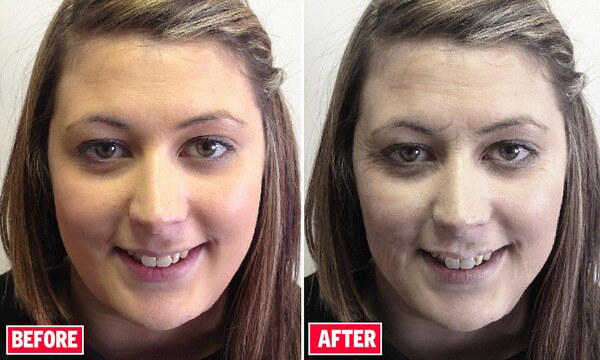
If you’ve recently quit smoking, then congratulations – your skin will benefit greatly from your newfound commitment to a healthier lifestyle. It can take some time for the full effects to be seen, but it’s never too late to start caring for your skin after quitting smoking. Here are some of the most important steps you can take on your journey to beautiful skin:
- Hydrate – Proper hydration is essential for eliminating toxins from the body and maintaining overall balance. Drinking plenty of water helps the organs process and move the toxins out of the body and supports a brighter complexion.
- Cleanse – Cleanse your face morning and night with products specifically designed for non-smokers, as current cleansers may still contain toxic residues from cigarettes that smokers also use. Be sure to use a gentle cleanser designed for removing makeup and dirt, rather than harsh exfoliants that can potentially damage delicate facial tissue. Additionally, use an oil-free toner to refresh and soothe skin during the day or at night.
- Protect – Apply sunscreen when going outside while also using a moisturizer with an SPF of 15 or higher to help guard against UV damage caused by long years of cigarette smoking. Makeup should only be applied when completely dry, so be sure not to apply it before you’ve completed all necessary skincare steps! Sun exposure is especially damaging after quitting smoking because one’s natural protective barrier has been weakened by years of nicotine use in cigarettes.
- Repair – Once you’ve switched from cigarettes to better skincare habits, take advantage of products specially formulated with ingredients such as antioxidants and vitamins C & E that restore elasticity, moisturize dry skin, brighten dull tone caused by smoking, reduce wrinkles and help even out skin tone affected by exposure to smoke particles over time. These powerful ingredients work together in synergy to heal damaged tissue quickly and effectively over time replace many artificial nicotine substitutes used in cigarettes that were harming your body’s natural defenses.
Potential Side Effects of Quitting Smoking
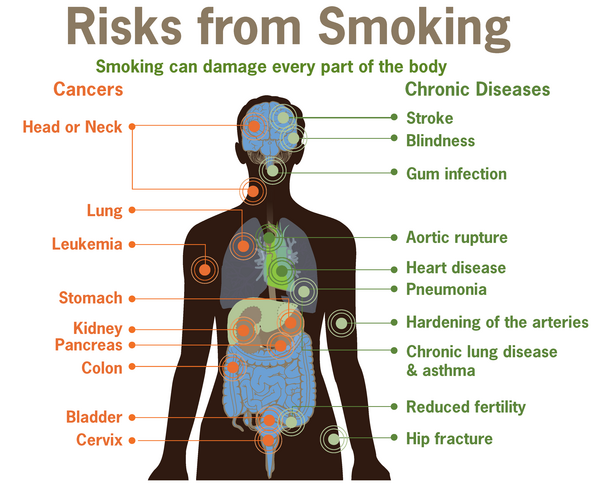
When you quit smoking, there are both short-term and long-term benefits to your skin. In the short term, quitting helps reduce puffiness around the eyes and skin discoloration caused by smoking. As a former smoker transitions into a non-smoker, they may notice their skin becoming softer and smoother within days or even hours.
However, with great potential benefits come potential side effects of quitting smoking that can be both physical and mental in nature. These include withdrawal symptoms such as irritability, anxiety, insomnia, mood swings, headaches and nausea. Nicotine cravings may also surface during this period of transition but can be addressed with lifestyle changes such as exercising more frequently or engaging in activities that do not involve nicotine use.
In addition to physical changes experienced while transitioning from a smoker to a non-smoker, emotional stressors may also arise from the cessation of cigarette use. A notable emotional change many people struggle with is the fear of failure—specifically worrying about gaining weight gained by consuming sugar for emotional pickup rather than nicotine or succumbing to stressors that fuel the need for nicotine once again due to lack of coping skills after quitting smoking. It is important to recognize that these thoughts are common during this period of change – it is important to address them head on by accessing resources including therapy hosted by smoke cessation clinics which can help provide basic counseling modules pertinent to developing healthy coping skills without nicotine use.
By being mindful of potential road blocks when attempting to quit smoking combined with lifestyle adjustments such as diet changes or scheduling regular exercise routines along with remaining cognizant of goals set for self-improvement when it comes to skin health will result in long-term visible benefits as well as improved overall well being.
Long-Term Benefits of Quitting Smoking

The long-term benefits of quitting smoking can be experienced in both physical and psychological aspects. The most immediately noticeable benefit of quitting smoking is visible in the form of improved skin health. This manifests itself in two distinct ways: healthier skin and fewer wrinkles.
- Healthier Skin: Quitting smoking helps your skin because the toxins and poisons from the smoke can clog pores, leading to breakouts and premature aging. Over time, this damage accumulates, leading to less vibrant skin and premature wrinkles. After you quit smoking, your pores clean out, making your skin smoother and cleaner looking. In addition, you will find that your overall complexion will improve over time when you refrain from smoking cigarettes.
- Fewer Wrinkles: Cigarette smoke contains several chemicals that break down elastin, which is responsible for giving our skin its elastic appearance. This breakdown leaves smokers prone to developing wrinkles at an earlier age than nonsmokers—sometimes as much as 16 years earlier! Removing these toxins from the system helps prevent wrinkles in the long term while also maintaining a healthy glow on your face even as you age naturally. You could notice a difference within weeks after quitting smoking!
Conclusion
The fact is, any healthy lifestyle change will benefit your skin. Quitting smoking is no different—you will notice improvement in the overall look and feel of your skin when you quit. The positive changes that you experience from quitting smoking can be very motivating and help to keep you on track with other health and wellness goals.
By understanding the specific effects of smoking on your skin, you are more likely to make better decisions about your health overall. If you need help quitting smoking, don't hesitate to reach out to a healthcare professional today. With their help and perseverance, you can start to reap the many rewards of quitting smoking on your skin—and all aspects of your physical and mental wellbeing—in the long run.
FAQ's:
The Benefits of Quitting Smoking on Your Skin
Reduced staining and discoloration One of the most obvious distinctions between your skin before and after stopping smoking is that your complexion will appear less grey and pale due to increased blood flow. After you quit, your face might even seem brighter with a healthy shine as your skin receives more nutrients and oxygen.
Can quitting smoking improve skin?
Giving up smoking can make you look better. Your skin obtains more oxygen and nutrients as blood flow improves. You might get a healthier complexion as a result.
How long after quitting smoking does skin improve?
This study found that skin biological age improved significantly at three months and remained stable for nine months. Thus, we predicted that quitting smoking would have a favorable impact on skin tone within a month.
Quit smoking skin improvement timeline
This study found that skin biological age improved significantly at three months and remained stable for nine months. As a result, we predicted that quitting smoking would improve skin tone within a month.
Related Keywords:















